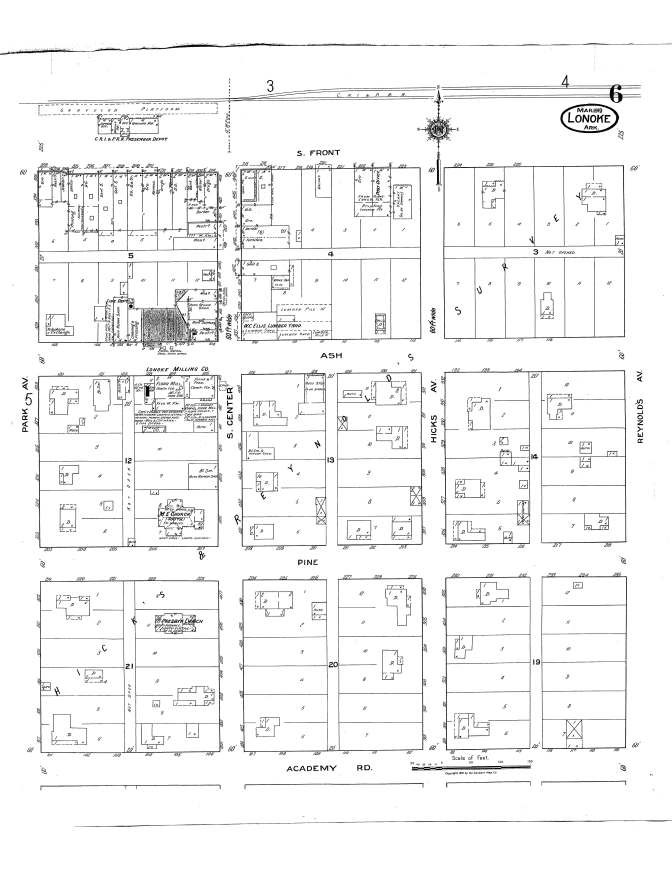The story of what happened at King’s Mountain during the Revolutionary War often focuses on the positives. Yes, the Patriots won the day and helped push to victory the battle cry of freedom from British rule, but at what cost? The answer to that question is sometimes very personal as along with a great victory, King’s Mountain, along with other battles in the Revolutionary War, often tore families apart.
One such story concerns a family called Logan who lived along the border of what are today the states of North and South Carolina. William “Clinch” Logan, the family patriarch, was born about 1709 in Scotland and initially settled in Virginia. He and his wife had several children, among them, four sons – John, William, Thomas, and Joseph. and at least one daughter – Jean Jane.
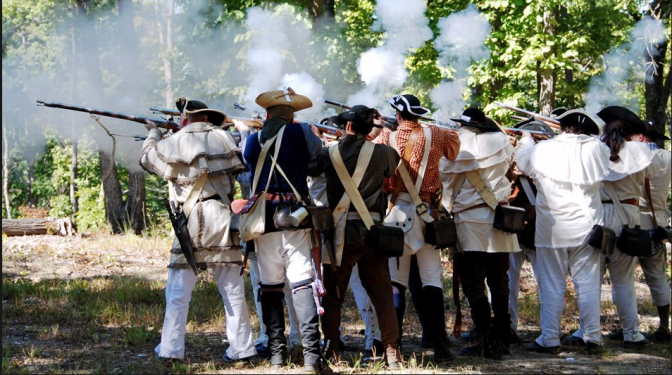 courtesy of the National Park Service
courtesy of the National Park Service
A few interesting details are needed to set the scene. By 1760, Jean Jane Logan had married John Harper and continued to live in Virginia. In addition to being a farmer and plantation owner, Harper was also involved in shipping and exporting prior to the outbreak of war with Britain. During the war he would actively outfit privateer ships that would set about looting British ships. In fact, his son was captured while captaining one of these ships. All of this to say that Harper was firmly behind the Patriot cause and Jean Jane Logan Harper would have supported her husband in this as well.
The four Logan brothers had moved further south by the 1760’s. Records show John purchased land in North Carolina twice in the 1760’s. William would live in and around the North and South Carolina border during the 1760’s and 1770’s. He married Jane Black around 1768. She was from an Irish family with deep Loyalist sympathies. Thomas, who would have probably still been living at home during the early 1760’s, was also in North Carolina, as was Joseph. Joseph seems to have married young and became a preacher.
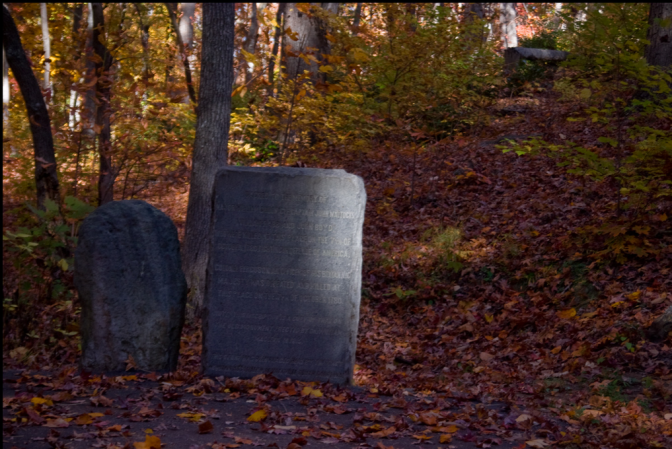 courtesy of learn NC.com
courtesy of learn NC.com
By the time of the Battle of King’s Mountain in October 1780, the brothers ranged in age from John, aged 37 to Joseph, the youngest, who was 22. It seems at that point that all four brothers were aligned in their support for the Patriot cause. John and William had already served with the Patriot militia. But something changed in 1780. As the fighting began on King’s Mountain, two brothers would stand against two brothers – John and Joseph would fight with the British, while William and Thomas fought with the Patriots.
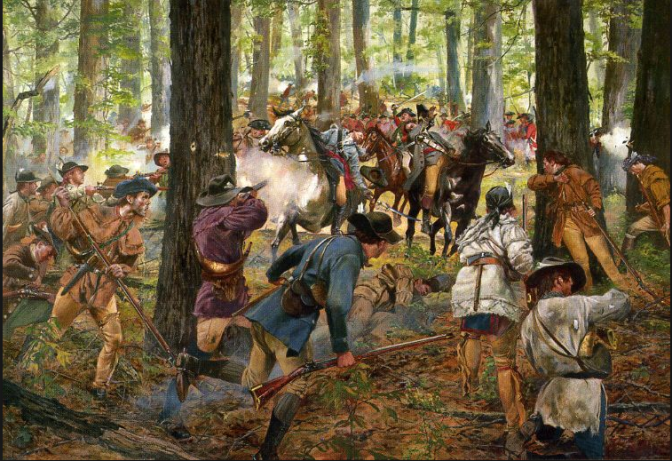 courtesy of Don Troiani/innofpatriots.com
courtesy of Don Troiani/innofpatriots.com
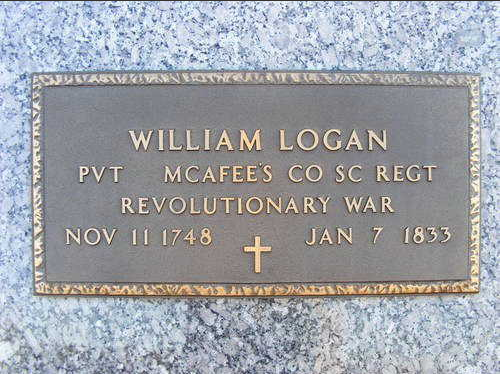 courtesy of findagrave.com
courtesy of findagrave.com
What split the brothers isn’t known for sure. For some reason, John seems to have switched sides at King’s Mountain. Perhaps he was fearful of being on the wrong side if the Patriots lost. Or perhaps, being the oldest son, old allegiances were a bit harder to break. It also isn’t clear why Joseph fought with the British – perhaps he was there to support his older brother. We may never know. What is known is that their decision to fight against the Patriot cause would cost them dear in the later years of their lives. John, my seven times great-grandfather, would end his life living in a poor house in Alabama, destitute. Within four years of King’s Mountain, Joseph had fled west to Kentucky. Life in the post-revolutionary Carolinas was no doubt very dangerous for those on the losing side. Both men had their pension applications denied in later years. The official reason was stated as “not enough proof of service.” That could have been true, but it could also have been true that old scores were still being settled.
During the intense fighting of King’s Mountain, it was reported that Thomas badly broke his thigh. Records indicate that he was left on the field of battle. It is not known if he survived. If you visit King’s Mountain today, you will hear stories of how locals would hear wolves howling from the mountain for weeks after the battle. No doubt they were lured by the scent of death. For Thomas’ sake I hope he died before they came. There is no clear record of Thomas after 1780.
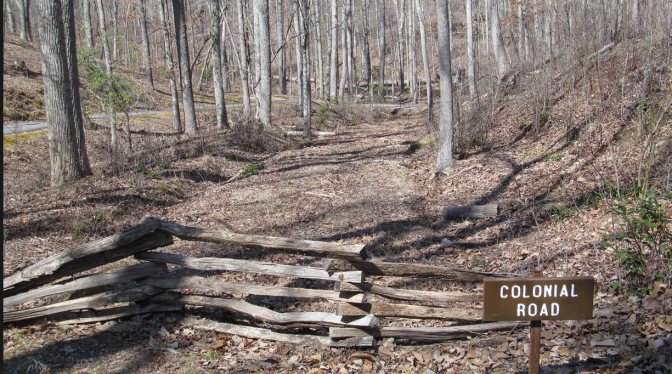 courtesy of National Park Service
courtesy of National Park Service
William also survived the battle and returned to his home in what is today York County, South Carolina. He and his wife would raise nine children before he died in 1833 in York County. His oldest son was William, Jr. – reflecting normal Scotch-Irish traditions of naming the oldest son after his father. His three other sons were named John, Thomas, and Joseph – reminders of his brothers and what had been lost.
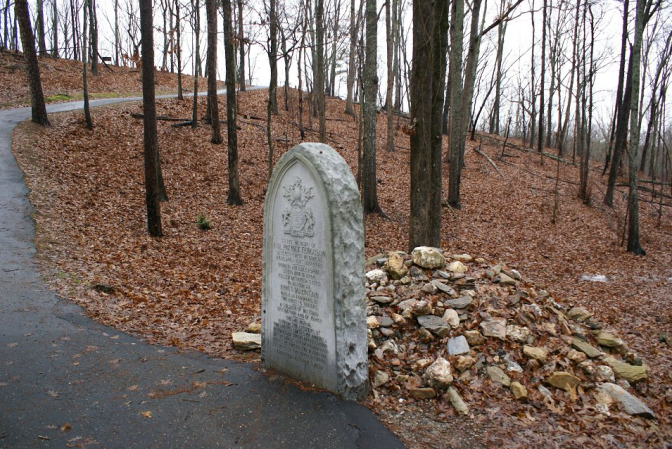 Grave of Patrick Ferguson (courtesy of johnsmilitaryhistory.com)
Grave of Patrick Ferguson (courtesy of johnsmilitaryhistory.com)
Four brothers among hundreds. Four brothers whose choices somehow pitted them against each other in the battle for the birth of a nation. Could they have crossed paths on that mountain in 1780? Did they? History is silent on the subject. All we know is that this same scenario played out again and again with countless families.
Victory demands sacrifice. Freedom is priceless…or is it?
Cover image courtesy of cityofkm.com
Share this:

